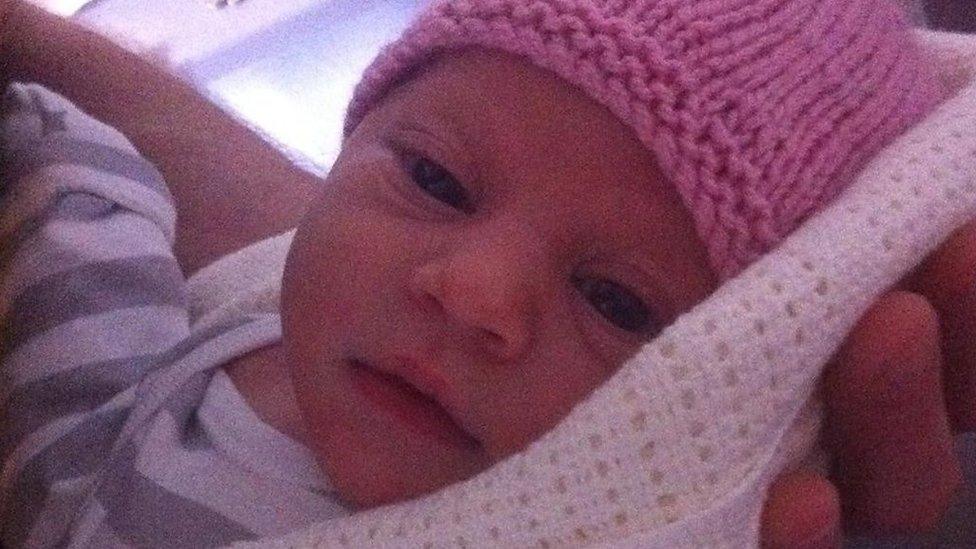Mother shares 'terrifying' postpartum psychosis ordeal
- Published
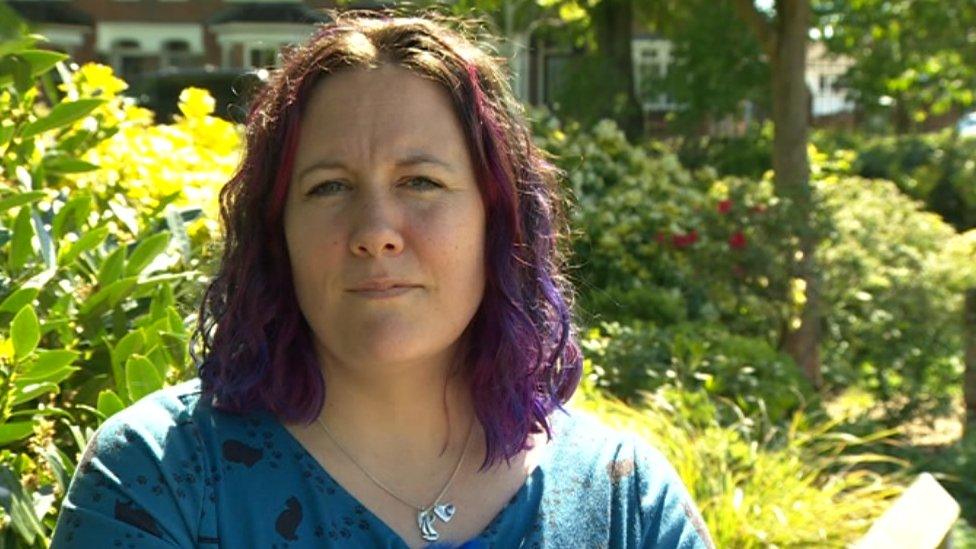
Maddy had postpartum psychosis after a stressful pregnancy
A woman has shared her "terrifying" experience of postpartum psychosis in a bid to raise awareness around the mental health condition.
Maddy's illness caused her to have hallucinations of smothering her baby.
Postpartum psychosis is a serious mental health illness affecting around one in 500 mothers after giving birth, external.
Maddy, from Southampton, said it was important for mothers experiencing symptoms of the condition to seek help.
Symptoms usually start within the first two weeks after giving birth and can include hallucinations, a manic mood and behaving out of character.
The NHS said the illness should be treated as a medical emergency, since it can get worse rapidly and can affect the safety of the mother and baby.
Speaking about her experience of having her first child in 2015, Maddy said symptoms started to develop when she was deprived of sleep as her son would not settle.
She said: "I knew that there was a problem when I started to have hallucinations and visions.
"Everything was in my head thankfully, but I would have visions of throwing my crying baby down the stairs or smothering him with a pillow - anything to get him away from me.
"It wasn't that I didn't love him, it was just the fact that I was so overwhelmed and the doctors didn't do anything about it ."
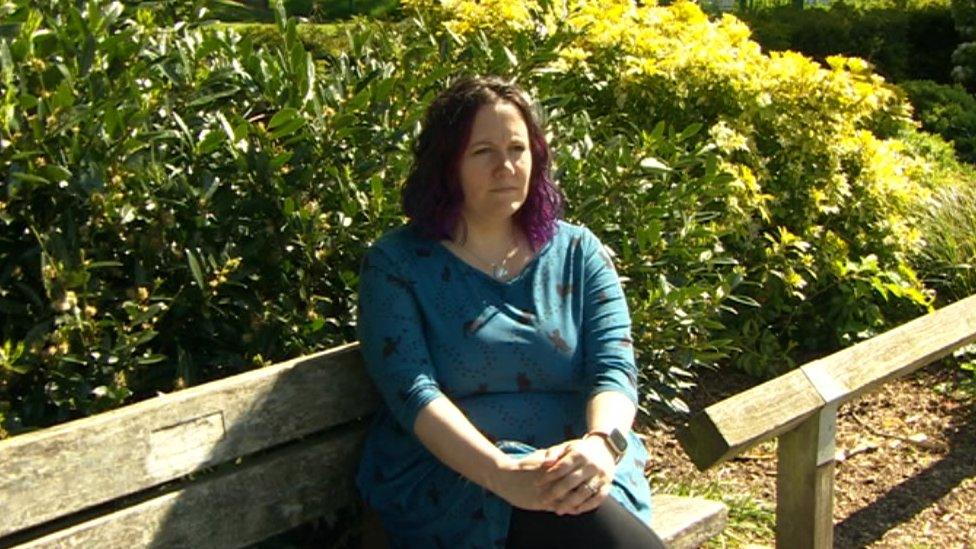
Maddy hopes to inspire others to seek help
Maddy struggled to talk about her "terrifying" and "disturbing" ordeal, until her mother suggested she speak to a counsellor who diagnosed her with postpartum psychosis.
Since recovering after treatment, which included counselling and hypnotherapy, the now mother-of-two set up a Facebook group and hopes to inspire others to seek help.
"I really want to raise awareness for new mums; if you're feeling like this it's not normal and you should go and speak to somebody," she said.
"It's a really distressing thing to have to go through and worry about why aren't you bonding with your child."

Follow BBC South on Facebook, external, Twitter, external, or Instagram, external. Send your story ideas to south.newsonline@bbc.co.uk, external.
Related topics
- Published21 January 2020
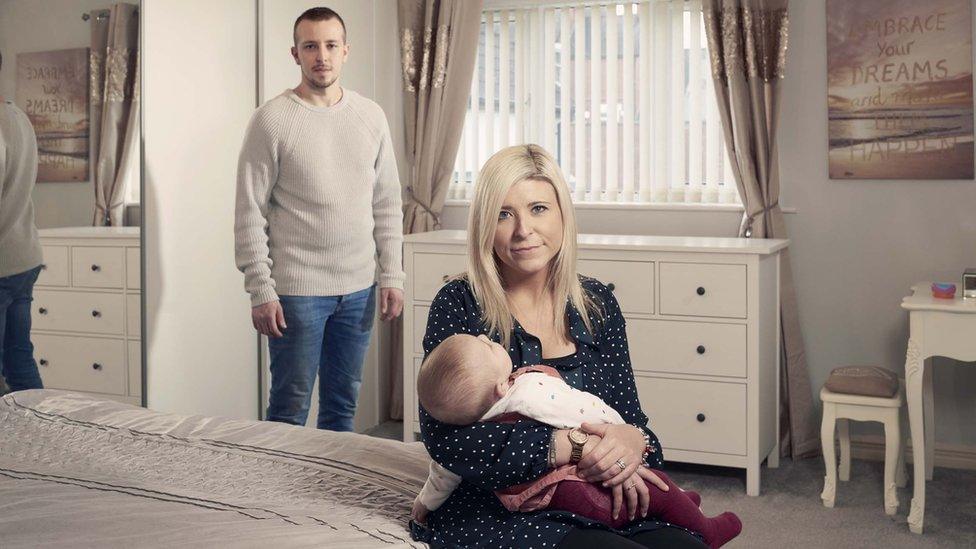
- Published11 June 2019
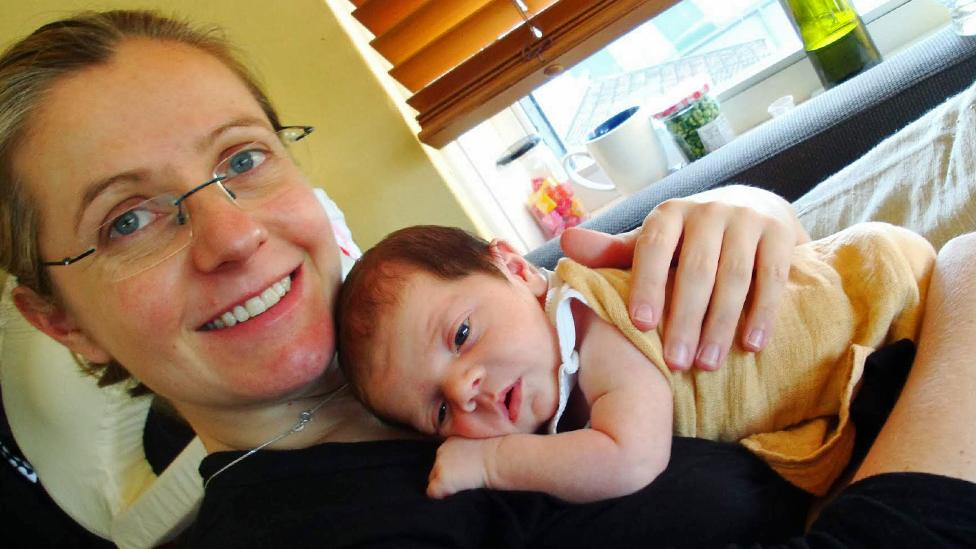
- Published13 March 2019
